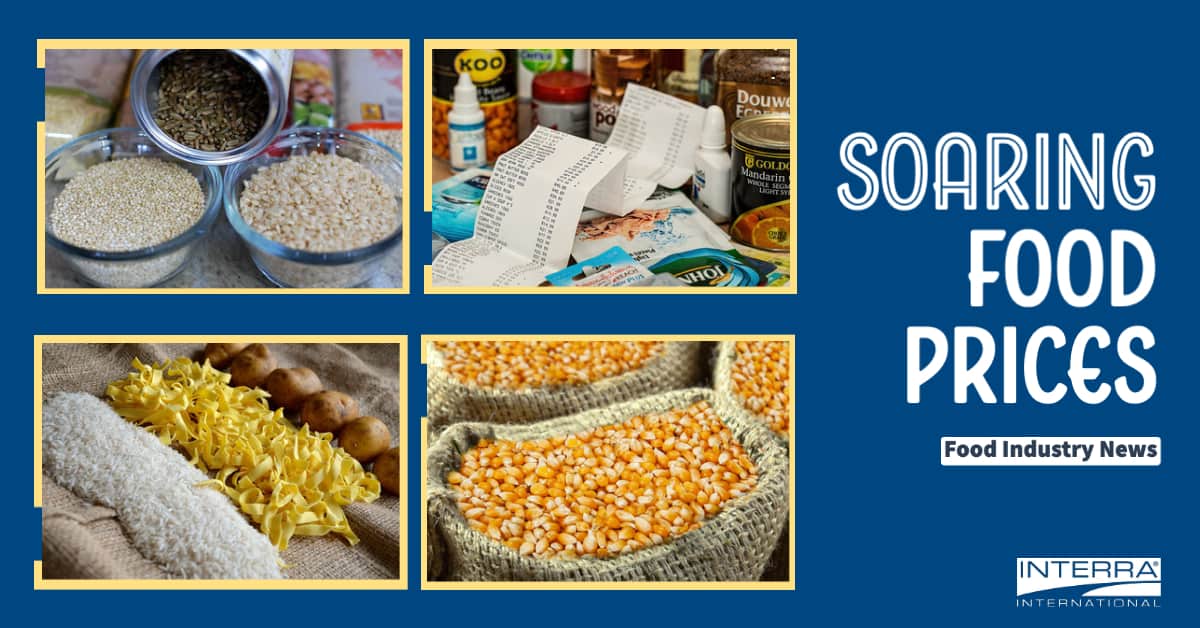Soaring Global Food Prices

The increase in raw materials and the cost of fuel is having a broad impact on food prices. Corn, wheat, rice, edible oils, and soybeans are dramatically more expensive with indications that prices will continue to rise.
Across the world, these commodities are the staples of existence and are now prohibitively expensive for many. Prices have risen 40% more than the 5-year average, with some food products increasing as much as 200%. In some areas that rely on trade and tourism, incomes have also declined, resulting in households being further squeezed.
What is Causing the Price Increases?
There are several factors contributing to the increase in food prices besides raw material and fuel costs. Supply is a huge concern. Supply chains have been disrupted as a result of the pandemic and continue to cause challenges to get products to market in a timely fashion. Climate changes, both temperature and rainfall, are exacerbating shortages. Ground transportation is also having an impact as trucker strikes lead to disruptions in port operations and the ability to get food product from port to market.
Biofuel demand is also playing a hand in shortages. As fuel costs increase, bioethanol and biodiesel products command attractive prices which has led to the conversion of agricultural land to biofuel production. These conversions are contributing to the growing imbalance between world food output and population growth which increased food demand in recent years.
The United States has stepped up to help Americans afford food through food stamp programs. The updated food stamp program is expected to help stimulate the economy as well as offset these rising costs for tens of thousands of people.
If you have supply chain challenges, concerns about food prices, or any challenge we can assist with for your food-based business, we are here to assist. Contact our specialists today to see what we can do to make the best of a challenging time.




